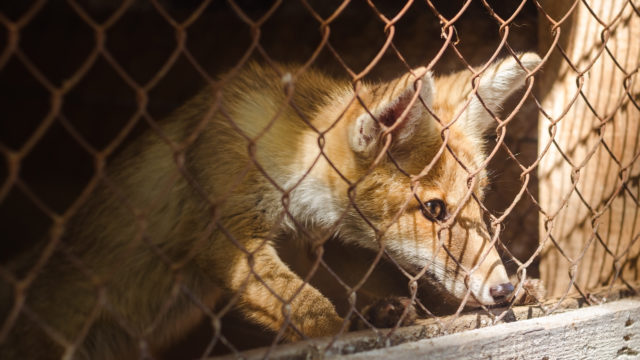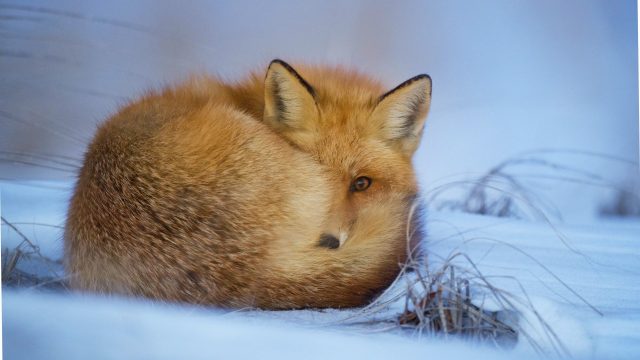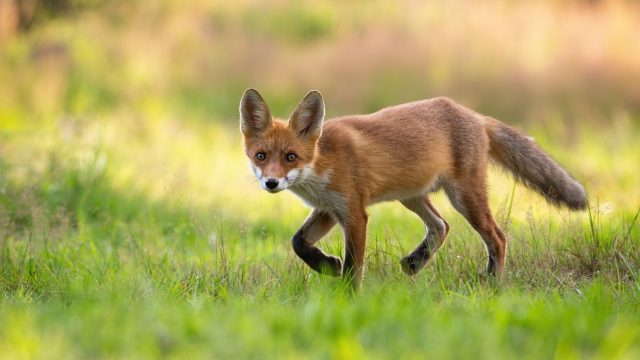
Mink VIRUS Act Introduced in the U.S. House to End Cruel and Dangerous Mink Farming
Bill will reduce the risk of zoonotic disease transmission by phasing out mink farming and help operators transition out of the industry
Contact: media@aldf.org
Washington, DC — Congressman Adriano Espaillat (NY-13) introduced the Mink: Vectors for Infection Risk in the United States Act, known as the Mink VIRUS Act (H.R. 3783), to protect public health and reduce the risk of zoonotic disease transmission by prohibiting mink farming in the U.S. More specifically, the bill would offer a one-year phase out period for mink farming and would establish a grant program to help operators transition out of the industry.
At mink farms, animals are housed in crowded, inhumane, unsanitary cages that promote the spread of zoonotic disease. Mink are highly susceptible to diseases that pose a threat to humans, such as COVID-19 and avian flu. In fact, tens of thousands of mink in the U.S. — and millions worldwide — have been infected with COVID-19, and there have been documented cases where mink have transmitted the virus to humans. Despite the zoonotic disease risk, the federal government has offered mink farms millions of dollars in loans to compensate producers for losses incurred from COVID-19 infection.
Few animals have been reported to have transmitted the COVID-19 to humans around the globe including white-tailed deer and hamsters, but mink have done this on multiple occasions — likely the first animal-to-human transmission in the U.S. — and mink farms in particular put the animals in close proximity to each other so the virus can spread rapidly, and research shows they may be more susceptible to mutations that can transmit the virus to humans.
“Mink farming is a dangerous industry that clearly poses a risk to public health and human safety,” says Animal Legal Defense Fund Strategic Legislative Affairs Manager Alicia Prygoski. “The federal government should not be using taxpayer dollars to prop up a dying industry that has the potential to fuel the next pandemic. We commend Congressman Espaillat for introducing a commonsense bill to prohibit mink farming and help operators transition away from this cruel practice.”
“Mink farming poses a severe and urgent problem to public safety as numerous studies have shown the animals are highly susceptible to COVID-19 and can transmit a mutated form of the virus back to humans,” says Representative Espaillat. “As communities around the nation are continuing to recover from the devastation brought on by the COVID-19 outbreak that include health implications and economic shutdowns, we must put forth new and improved safety protocols and disincentivize mink farms that hinder our progress to recover from the pandemic as well as combat outbreaks of other viruses in the future. My legislation aims to curb mink fur farming and will establish a new federal grant program to reimburse farmers the full value of their farms. We must do all that is possible to ensure protocols are in place that would circumvent and minimize potential future outbreaks of viruses known and unknown to keep our communities safe.”
Cities and states in the U.S. and foreign countries such as Israel are now banning fur sales, further closing markets for fur products. In 2019, California became the first state to ban fur sales after similar measures passed in Los Angeles, San Francisco, Berkeley and West Hollywood. In 2020, Wellesley, Massachusetts became the first East Coast city to ban fur sales. Countries who have banned or are phasing out mink farming specifically include British Columbia, Hungary, and the Netherlands.
Related
-
San Francisco Fur Ban Stands After Appeal is Dropped
International Fur Trade Federation agreed to dismiss its appeal, ending case in decisive victory for animalsJanuary 6, 2022 Press Release -
Court Upholds Constitutionality of San Francisco Fur Ban
International Fur Trade Federation’s amended complaints dismissed in decisive victory for animalsMarch 31, 2021 Press Release -
Animal Groups Defend San Francisco Fur Ban
Animal protection organizations allowed to intervene in International Fur Federation lawsuit challenging ordinance’s constitutionalityApril 20, 2020 Press Release



